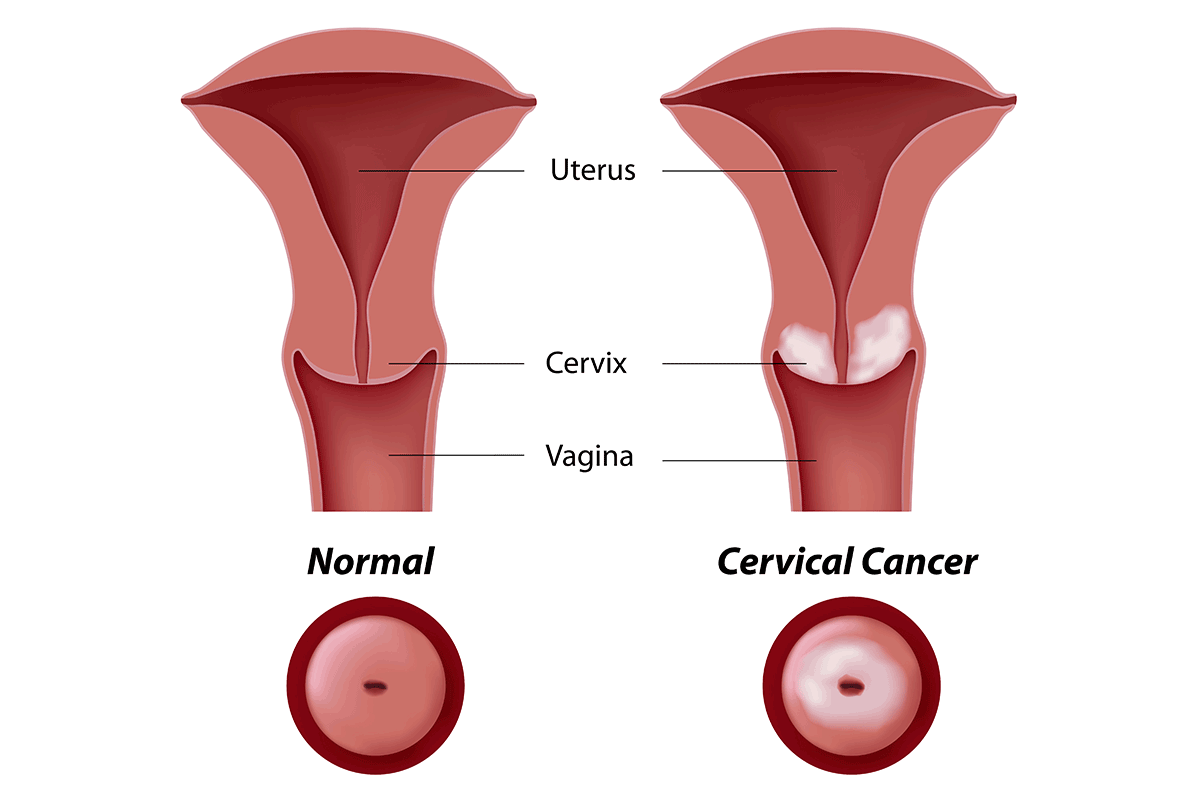Cervical Health Awareness
- Category: Health & Wellness, Women's Health
- Posted On:
- Written By: LVMC

January is Cervical Health Awareness Month and an ideal time to schedule your next women's wellness exam. During your exam, your provider can perform valuable cervical cancer screenings, including a Pap smear.
Cervical cancer does not always cause noticeable symptoms. In its early stages, cervical cancer often goes undiagnosed. Routine preventive care helps keep your cervix healthy.
What is cervical cancer?

The cervix is the lowest part of your uterus. This structure connects your uterus to your vagina. The cervix plays an important role in a woman's health, especially during pregnancy. During pregnancy, the cervix helps support a growing baby.
Unfortunately, tens of thousands of women are diagnosed with cervical cancer each year. Cervical cancer can affect your fertility and cause widespread pain. Without treatment, cervical cancer may be fatal.
What causes cervical cancer?
Most cases of cervical cancer are caused by human papillomavirus (HPV). HPV is a sexually transmitted disease (STD) that affects almost 80 million Americans. Anyone who is sexually active is at risk for HPV.
There is no cure for HPV. The virus often clears up on its own without any special treatment, but HPV often causes genital warts and abnormal growths around your cervix. Over time, some of these growths may lead to cancer.
Researchers aren't sure why some women with HPV get cervical cancer while others don't. But preventing HPV is the best way to prevent cervical cancer.
Can I lower my risk of cervical cancer?
If you're sexually active, it's important to know your STD status. Your healthcare provider performs tests to find out if you have HPV.
If you're diagnosed with HPV, your provider may recommend extra cancer screenings. These screenings will not lower your risk of cervical cancer, but they can help identify cancer in its early stages. Early diagnosis and treatment improve your chances of recovery.
In the meantime, you can reduce your risk of cervical cancer by practicing safe sex. Using condoms lowers your chances of catching HPV. If you already have HPV, condoms can also keep you from infecting your partner.
The HPV vaccine offers the greatest protection against cervical cancer. This vaccine is usually administered in two to three doses. Doctors recommend that children get the HPV vaccine around age 12.
Adults are eligible for the HPV vaccine, too. The vaccine is currently approved for men and women up to age 45. Ask your healthcare provider for more information about the HPV vaccine.
How is cervical cancer diagnosed?
Your healthcare provider can offer regular women's wellness exams. As part of your exam, you may receive a Pap smear.
Women between the ages of 21 and 65 should receive Pap smears. During a Pap smear, your provider collects a small sample of cells from your cervix. Your provider examines these cells under a microscope to check for cancer.
If you don't have HPV, your provider might recommend getting a Pap smear every three to five years. But if you have HPV or a history of abnormal Pap smears, you might need more frequent exams.
Your provider can help you create a preventive care plan. Your preventive care plan explains how often you need cancer screenings and checkups.
Facts about the HPV vaccine
- About 80% of people who are sexually active contract HPV at some point in their life.
- Anyone who is sexually active can get HPV. You can contract HPV the first time you have sex.
- Condoms offer some protection against HPV, but you can still get HPV even if you practice safe sex.
- HPV can also cause penile cancer, anal cancer, and throat cancer.
- Both men and women are eligible for the HPV vaccine.
- The HPV vaccine protects against 90% of cervical cancers.
- The HPV vaccine cannot help clear the virus if you're already infected.
- The vaccine is most effective if you get it before becoming sexually active.
- The vaccine has been thoroughly tested, and it's considered safe for most patients.
- There is no evidence that the HPV vaccine encourages teenagers to become sexually active.
What to do if you're diagnosed with HPV
An HPV diagnosis can be upsetting, but keep in mind that most people with HPV do not develop cervical cancer. Your body may clear the virus on its own, but if you have HPV, you need regular cancer screenings.
If you visit a new healthcare provider, let them know that you have HPV. Your provider can determine whether it's time for another screening. He or she can also review safer sex practices, so you can keep from spreading the virus.
What to do if you're diagnosed with cervical cancer
If you have an abnormal Pap smear, your provider explains what this means for you. An abnormal result doesn't necessarily mean you have cancer. Some abnormal results can be a sign of an infection.
Your provider may perform imaging tests or take a biopsy. These tests help confirm the presence of precancerous or cancerous cells. Precancerous cells may develop into cancer if they are left untreated, but your provider can perform an in-office procedure to destroy the cells.
If your provider discovers that you have cervical cancer, they may refer you to a specialist. Your specialist will determine how far the cancer has spread. He or she also helps you weigh your options and choose the right treatments.
Receiving a cancer diagnosis is always a frightening experience. But most cases of cervical cancer respond well to treatment. The five-year survival rate for women with invasive cervical cancer is more than 92%. The sooner your cancer is diagnosed, the better your chances of recovery.
Thanks to the HPV vaccine, cervical cancer rates decrease each year. Pap smears also help detect cancer in its early stages. If you're concerned about your cervical health, don't skip your next wellness visit. Ask your provider what you can do to protect against cervical cancer.






